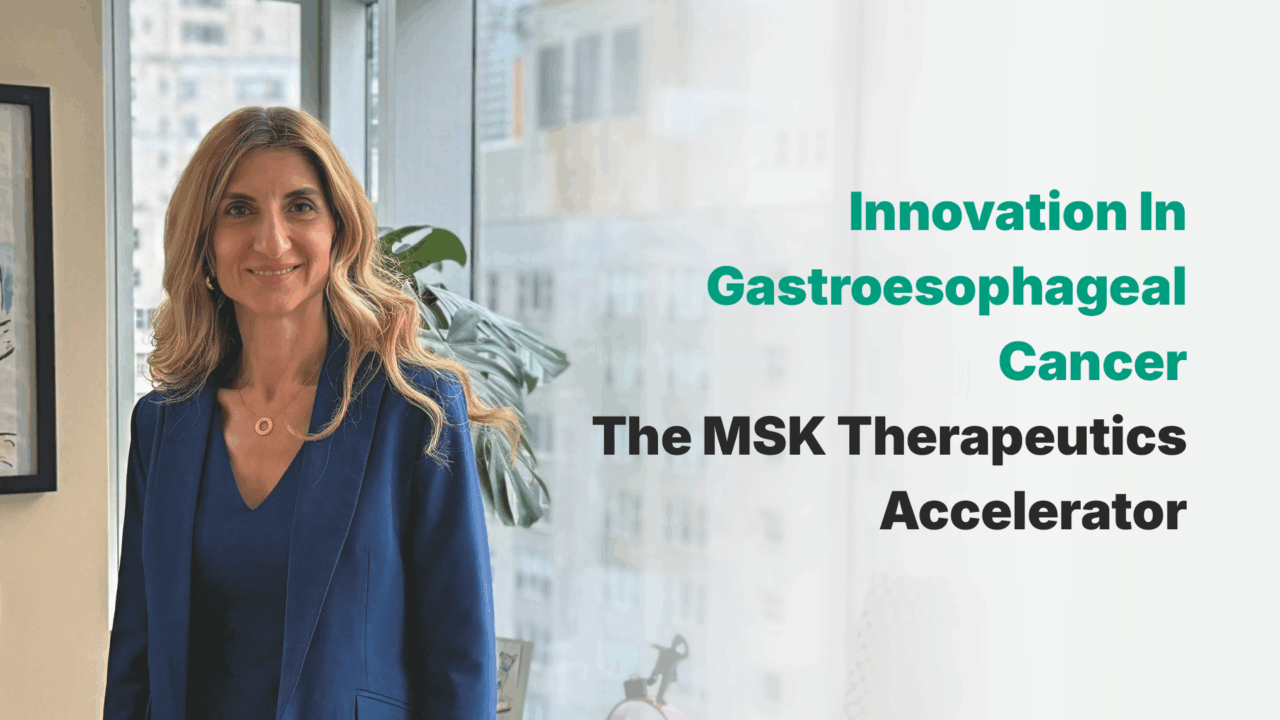
Innovation In Gastroesophageal Cancer
OncoDaily Magazine is a professional and informative publication that highlights the latest innovations in oncology and fosters continuous professional education. It provides expert insights and covers global developments in cancer care, keeping readers at the forefront of this rapidly evolving field.
Innovation In Gastroesophageal Cancer
The MSK Therapeutics Accelerator
Esophageal and gastric cancers together represent the third leading cause of cancer-related mortality worldwide, with a rising incidence among younger patients. Despite recent therapeutic advances, the prognosis for patients with gastroesophageal cancer (GEC) remains poor, highlighting the urgent need for transformative, science-driven approaches.
To address this challenge, Memorial Sloan Kettering Cancer Center (MSK) launched the Gastroesophageal Cancer Therapeutics Accelerator (GCTA) in 2024. This initiative, founded by Yelena Y. Janjigian, MD, Chief Attending of the Gastrointestinal Oncology Service at MSK, is designed to integrate translational research, clinical innovation, and global collaboration. Its mission is to drive new target discovery and ultimately deliver curative therapies for patients with GEC.
MSK is the largest U.S. center dedicated to the treatment of GEC, caring for more than 1,500 patients annually. The institution leads over 20 active clinical trials focused solely on gastroesophageal cancer – making it a uniquely concentrated and comprehensive program. These therapeutic trials are strategically coupled with multi-omics biomarker analysis, computational modeling, and functional validation using patient derived organoids (PDOs), xenografts (PDXs), and electroporation models.
These integrated efforts aim to uncover and overcome mechanisms of therapeutic resistance while developing the next generation of targeted treatments. This approach reflects MSK’s commitment to learning from each individual patient and ensuring that every trial contributes to the foundation of biomarker-guided
precision medicine.
The operational success of the GCTA reflects a coordinated, multidisciplinary leadership team. Amin Yaqubie, Clinical Research Manager, oversees clinical operations: Patrick Evans, Senior Project Manager, leads translational coordination; and research infrastructure is supported by Rory McGriskin, Research Project Associate, and Marthina Daniel, Senior Executive Assistant. Together with MSK faculty investigators, this team ensures the seamless execution of complex translational studies that move swiftly from hypothesis to patient care.
At the core of the GCTA is a research ecosystem that leverages digital pathology, large clinically annotated datasets from MSK-led clinical trials, and real-world outcomes data to fuel AI-enabled target discovery. Novel findings are validated using MSK’s expansive repository of preclinical models, including PDOs, PDXs, and electroporation platforms specifically adapted for gastroesophageal malignancies.
To foster global collaboration, the GCTA hosts biannual in-person retreats at MSK, bringing together physician-scientists and basic researchers from across four continents. These meetings convene leaders from the U.S., Europe, Asia, and South America to exchange ideas, refine hypotheses, and strategize around the most promising translational directions. The most recent retreat, held on May 16, 2025, emphasized cross-institutional data sharing, mechanistic discovery, and next-generation clinical trial design. The next retreat is scheduled for November 2025.
A defining example of the GCTA’s translational impact is the development of a novel HER2-directed immunotherapy strategy. After multiple dual HER2 blockade regimens failed to improve outcomes in GEC – despite success in breast cancer – MSK researchers identified PD-L1 upregulation as a resistance mechanism to trastuzumab. This mechanistic insight led to a new therapeutic hypothesis: co-administering trastuzumab with immune checkpoint inhibition.
Dr. Janjigian led a pivotal trial testing trastuzumab with pembrolizumab, generating data that were first published in Nature (2021), and subsequently in Lancet (2023) and NEJM (2024). These results established a new global
standard of care for HER2-positive metastatic GEC.
The GCTA’s clinical innovation continues through the work of Samuel Cytryn, MD, Assistant Attending in the GI Oncology Service, who is leading a multicenter trial evaluating this HER2/ PD-1 combination as a non-operative strategy in localized disease – a major advance for patients eligible for organ preservation.
Disclosure: Dr. Yelena Janjigian is a member of the OncoDaily editorial board.
Explore more about Yelena Janjigian on OncoDaily.
-
Challenging the Status Quo in Colorectal Cancer 2024
December 6-8, 2024
-
ESMO 2024 Congress
September 13-17, 2024
-
ASCO Annual Meeting
May 30 - June 4, 2024
-
Yvonne Award 2024
May 31, 2024
-
OncoThon 2024, Online
Feb. 15, 2024
-
Global Summit on War & Cancer 2023, Online
Dec. 14-16, 2023

